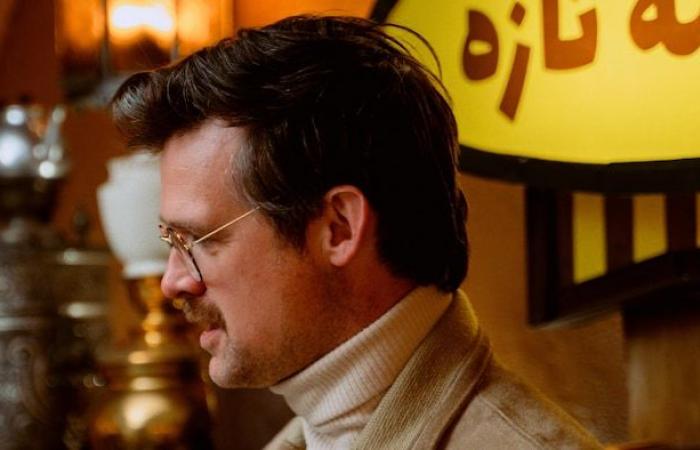A new event for film buffs is opening this week in Quebec: Montreal Critics’ Week, a non-competitive festival presenting films in a double or triple program, followed by discussions with filmmakers and panelists. This online magazine initiative Panorama-cinema is part of the spirit of Berlin Critics’ Week.
The idea for this festival, which takes place from Monday to Sunday at the Cinémathèque québécoise and Cinéma Moderne, came from the head of Mathieu Li-Goyette, film critic and editor-in-chief of Panorama-cinemaduring his stint in 2018 as guest programmer of Berlin Critics’ Week, a parallel section of the Berlinale.
Unlike the Cannes Critics’ Week, which brings together first or second works by emerging filmmakers, the Berlin Critics’ Week presents films in bouquets in order to spark a conversation about the themes they have in common.
Seeing the Berlin formula, it made me notice to what extent we had lost that, the fact of taking the time to discuss films. Not just a 10-minute question-and-answer session where we ask the filmmakers: “What was it like to work with this actor?”, explains Mathieu Li-Goyette. These are valid questions, but it just gives you time to scratch the surface.
The director of programming for Critics’ Week, Ariel Esteban-Cayer, also cut his teeth as a critic before turning to programming, notably for Fantasia. For me, programming has always been an extension of critical work, he explains. We wanted a program that said something through the juxtaposition of the films, through the themes they support.
The majority of Critics’ Week screenings are followed by a discussion between the filmmakers behind the films presented as well as the invited panelists, drawing on the thematic, political and formal ramifications of the chosen works
we explain on the festival website.
A meeting between Matthew Rankin and Abdolreza Kahani
In total, 19 short, medium and feature films will be presented over the seven evenings of the festival. In theory, someone could be there every night and understand the narrative arc that we constructed through that, explains Mathieu Li-Goyette. But the festival is also interesting for someone who comes just one evening. Each evening is self-sufficient.
The evening of Sunday January 19, for example, offers a double program during which will be screened A universal languagea film by Matthew Rankin which will represent Canada at the Oscars, and A Shrineby Iranian director and adopted Montrealer Abdolreza Kahani, two works filmed mainly in Farsi.
The first imagines an Iranian bubble in the city of Winnipeg, where everyone speaks Persian and people drink saffron tea at Tim Hortons. The second follows Nima, a mechanic of Iranian origin who tries to make money by building an altar of blessed pieces of wood in Montreal and the Laurentians.
Open in full screen mode
Canadian filmmaker Matthew Rankin also plays a role in his film “A Universal Language”.
Photo: Maison 4 tiers / Aziz Zoromba
Rankin’s film is about meeting others, living together, while Kahani’s is more about the solitude and difficulties of an Iranian guy trying to integrate.
explains Mathieu Li-Goyette, who sees the two works as mirrors of each other.
There are scenes that are similar, there are shots that are similar, there is really something quite magical that is happening between these two films.
The screenings will be followed by a meeting between the two filmmakers.
Among the other programs offered, we note that of Saturday entitled “Territoire(s) occupied(s)”, which looks at the question of the territory and those who exist there and resist it on a daily basis
. Three films will be shown: Fujiyama Cotton de Taku Aoyagi, Fertile memory by Michel Khleifi and Spiders Web Frank “Spider” Dunsten, Ben Roberts and Oliver Roberts.
The complete program for Montreal Critics’ Week is available on the festival website (New window).






